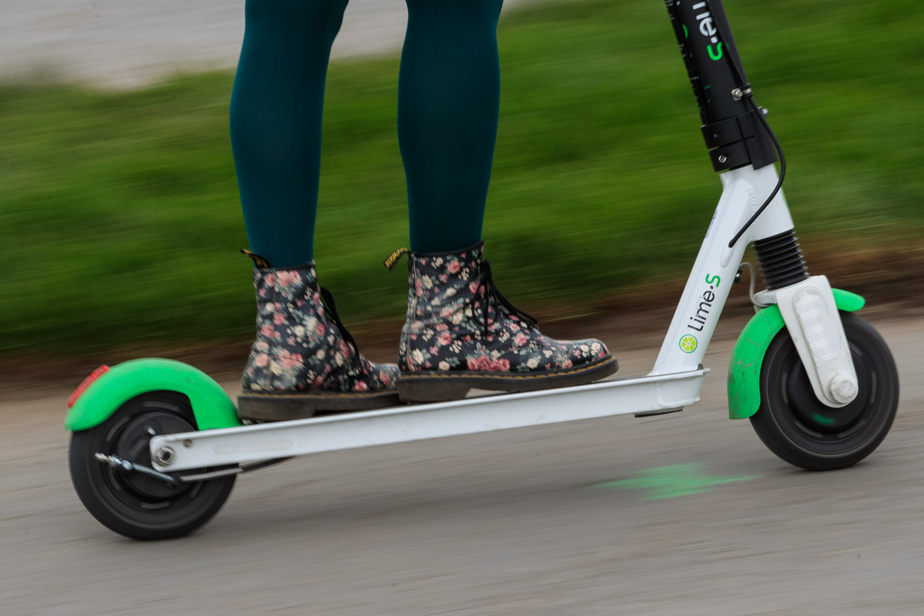Because there is a need to “experiment more widely with their use”, the Legault government has just made the circulation of electric scooters officially legal on streets where the maximum speed is 50 km/h or less.
Quebec considers that the various pilot projects in progress do not make it possible to take “the full measure” of the usefulness of the means of transport. The news was confirmed by the publication of a ministerial decree by the Minister of Transport, Geneviève Guilbault, on Wednesday evening. Everything will come into effect within two weeks, on July 20. However, there is no indication that the order will be renewed. It will currently be effective for a minimum of three years, until July 2026.
Until now, most of the time, electric scooters were considered “illegal” on Quebec territory, even if it was common to see them in the metropolis, in particular. At the beginning of June, the Éducaloi organization also recalled on its website that “you cannot ride an electric scooter on any public road, such as streets, sidewalks and bike paths”, under penalty of a fine of up to $200 for a first offence.
However, several pilot projects were already underway, under the direction of the Ministry of Transport. In Montreal, 200 Bird Canada scooters have already been back since the beginning of July at Parc Jean-Drapeau. Laval will also try the experiment this summer with a private company, just like several other cities have already done.
However, according to the document signed by Minister Guilbault, “these pilot projects do not make it possible to take the full measure of the use of electric scooters and motorized personal transport devices on public roads”. “It is necessary to experiment more widely with their use in respect of road safety”, writes the elected official.
A set of rules
To ride an electric scooter legally in Quebec, however, you will have to follow several rules, including being 14 years of age or older. Wearing a helmet will also be compulsory with a “rigid and padded shell inside”, or even a chinstrap, support the authorities.
In the short term, traffic on roads where the maximum permitted speed is more than 50 km/h will be prohibited, unless it is done to cross an intersection or a roundabout. Quebec will also allow scooters to ride on a road of 50 km / h and more if they are in a bike lane protected from the roadway by a physical layout.
Like cyclists, the user must “signal his intention to turn” to other road users at all times, either by a wave of the arm or a flashing light. We will also not be able to board more than one person on a scooter and the use of cell phones will be prohibited, as in a car. Wearing headphones and consuming alcohol or drugs while riding are also prohibited.
Note: Quebec will also impose a maximum motor power of 500 watts on scooters, with a training effect that must cease when the machine reaches at most 25 km/h. The weight of the scooter cannot exceed 36 kilograms, including the battery, and the diameter of the wheels must be at least 19 centimeters.
In the metropolis, the trauma of electric scooters is still recent for many citizens. In 2019, the City had abandoned the idea of hosting self-service fleets, when barely 20% of scooters were stored in reserved areas. They often found themselves in places where they interfered with traffic and their cohabitation with pedestrians and cyclists was difficult.
However, the electric scooter industry has been trying for several months to get back in the saddle, recently reported The Press. Most companies like Lime, Bird, Neuron Mobility or Lyft claim to have evolved their technology from the initial duds, including a location system and dedicated areas to prevent users from parking anywhere in the city.
